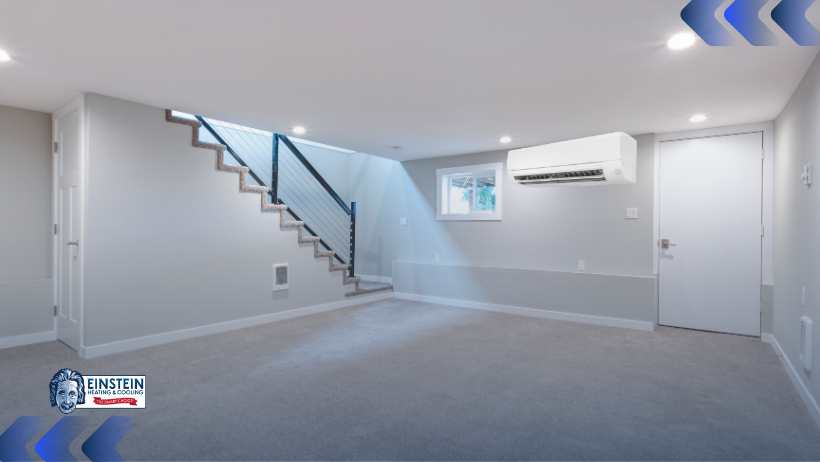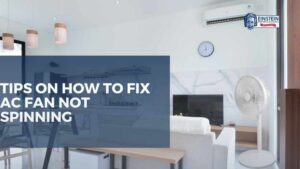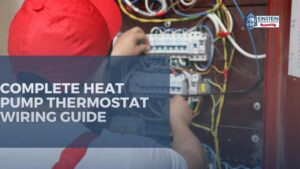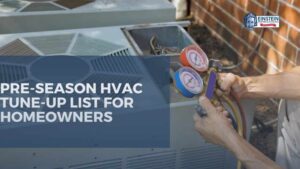In this blog post, we will delve into the factors that make an air conditioner for a basement an essential investment. Whether you’re planning a cozy entertainment area or converting your basement into a home office, choosing the right air conditioning system can significantly enhance overall comfort. Let’s explore the key considerations to ensure you make an informed decision.
1. Understanding Basement Dynamics
Subterranean Challenges
Basements are inherently different from other parts of the house due to their subterranean nature. They are prone to higher humidity levels, limited natural light, and temperature variations. To counter these challenges effectively, selecting an air conditioner designed specifically for basements becomes crucial.
Ventilation Requirements
Basements often lack proper ventilation, leading to poor air circulation. An effective air conditioning system should not only cool the air but also ensure proper ventilation. This helps in preventing the buildup of stale air, mold, and mildew, creating a healthier living environment.
Size and Layout Considerations
Before investing in an air conditioner, it’s essential to assess the size and layout of your basement. Larger basements may require more powerful cooling solutions, while smaller spaces may benefit from compact and energy-efficient units. Understanding the specific requirements of your basement is key to selecting an air conditioner that can handle the space effectively.
2. Types of Air Conditioners for Basements
Window Air Conditioners
Easy Installation
Window air conditioners are a popular choice for basements due to their relatively simple HVAC installation process. They are designed to fit into standard windows, providing a cost-effective and efficient cooling solution. Additionally, these units can be easily removed or replaced, offering flexibility in managing your basement’s temperature.
Size Variations
Available in various sizes and cooling capacities, window air conditioners can be chosen based on the dimensions of your basement. This adaptability makes them suitable for both small and large spaces, providing an effective cooling solution regardless of the room size. Make sure to get an HVAC technician to check the proper sizing for your AC.
Budget-Friendly Option
For homeowners on a budget, window air conditioners offer a cost-effective way to cool a basement. Their initial cost is generally lower compared to other types of air conditioning systems, making them an attractive option for those looking for affordability without compromising performance.
Portable Air Conditioners
Mobility and Flexibility
One of the significant advantages of portable air conditioners is their mobility. They can be easily moved from one area of the basement to another, providing flexibility in cooling specific zones as needed. This feature is particularly beneficial for those with dynamic basement layouts or changing usage patterns.
No Installation Restrictions
Unlike a window unit, a portable air conditioner for a basement do not require a dedicated window space for installation. This makes them suitable for basements with limited or unconventional window placements. The ease of setup adds to their appeal, making them a versatile option for various basement configurations.
Dual Functionality
Many portable air conditioners come with additional features such as built-in dehumidifiers and fans. This dual functionality is advantageous in basements, where controlling both temperature and humidity levels is crucial. Investing in a portable unit with multiple functions can contribute to a more comfortable and healthier basement environment.
Ductless Mini-Split Systems
Zoned Cooling
Ductless mini-split systems offer zoned cooling, allowing you to control the temperature of individual areas in your basement independently. This feature is beneficial for larger basements with diverse usage, ensuring that each section receives optimal cooling according to its specific requirements.
Aesthetic Appeal
With the compressor unit placed outside the house and the air handlers mounted inside, ductless mini-split systems are visually less obtrusive compared to window units. This can be an important consideration for homeowners who want to maintain a clean and uncluttered appearance in their basement.
Energy Efficiency
Ductless mini-split systems are known for their energy efficiency. By avoiding the energy losses associated with ductwork, these systems can provide cost-effective and environmentally friendly cooling solutions for basements. Additionally, many models come with programmable thermostats, further enhancing energy conservation.
3. Energy Efficiency and Cost Considerations
Energy Efficiency Ratings
When selecting an air conditioner for your basement, pay attention to the Energy Efficiency Ratio (EER) or Seasonal Energy Efficiency Ratio (SEER). These ratings indicate the unit’s efficiency in converting electrical input into cooling output. Opting for a higher EER or SEER can result in long-term energy savings and reduced utility costs.
Initial Cost vs. Operating Cost
Consider both the initial cost of the air conditioner and its long-term operating costs. While budget constraints may influence your initial purchase decision, it’s essential to weigh the energy efficiency and potential savings in operating costs over the lifespan of the unit. A slightly higher upfront investment in a more energy-efficient model can pay off in the long run.
Maintenance and Filter Replacement
Regular maintenance is key to ensuring the optimal performance of your basement air conditioner. Check for units with easily accessible and washable filters, as clean filters contribute to better airflow and efficiency. Understanding the maintenance requirements upfront can help you make an informed decision and avoid unexpected costs down the line.

4. Humidity Control
Built-In Dehumidification Features
Basements are prone to higher humidity levels, which can lead to discomfort and contribute to mold growth. Choosing an air conditioner with built-in dehumidification features helps in controlling excess moisture, creating a more comfortable and healthier living environment. This is particularly important in regions with humid climates.
Drainage Options
Consider the drainage options available with different air conditioning units. Some models come with built-in pumps that can push water upward to a drainage point, while others rely on gravity to remove condensate. Understanding the drainage mechanism is crucial for preventing water accumulation and potential damage to your basement.
Humidity Settings and Controls
Look for air conditioners that allow you to set and control humidity levels. This feature is valuable in basements where maintaining an optimal balance between temperature and humidity is essential. Adjustable humidity settings provide the flexibility to customize the indoor environment according to your preferences.
5. Noise Levels
Quiet Operation
Basements often serve as multi-functional spaces, including bedrooms, home offices, or entertainment areas. Excessive noise from an air conditioner can be disruptive, especially in areas where quiet is paramount. Choose a unit with a low noise level to ensure a comfortable and peaceful atmosphere in your basement.
Decibel Ratings
Check the decibel (dB) ratings of different air conditioning models. Lower dB levels indicate quieter operation. This information is usually available in the product specifications and can help you choose a unit that aligns with your preferences for noise levels in the basement.
Noise Reduction Features
Before getting a basement air conditioner, check each feature thoroughly. Some air conditioners come with noise-reduction features, such as insulated cabinets or advanced compressor technology. These features contribute to a quieter operation, making them suitable for basements used for relaxation, work, or sleep. Prioritize units with noise reduction technologies if maintaining a serene environment is a priority then contact an expert HVAC technician for installation recommendations.
6. Cooling Capacity and Size
Matching Cooling Capacity to Basement Size
The cooling capacity of an air conditioner is measured in British Thermal Units (BTUs). It’s crucial to match the BTU rating of the unit to the size of your basement. A unit with insufficient cooling capacity will struggle to maintain a comfortable temperature, while an overpowered unit may cycle on and off frequently, leading to inefficiency.
Square Footage Guidelines
Manufacturers typically provide guidelines on the square footage that a specific BTU rating can effectively cool. Measure the square footage of your basement and use these guidelines to narrow down the appropriate cooling capacity for your air conditioner. This ensures optimal performance and energy efficiency.
Compact Designs for Limited Spaces
If your basement has limited space, consider air conditioners with compact designs. Wall-mounted units or portable air conditioners can be excellent options for smaller basements where floor space is at a premium. Compact designs not only save space but also offer installation flexibility.
7. Installation and Compatibility
Window Air Conditioner Installation
For window air conditioners, ensure that your basement windows are compatible with the unit’s dimensions. Measure the window opening accurately and check the unit’s installation requirements to avoid any complications during setup. Proper HVAC installation is crucial for efficient operation and longevity of the air conditioner.
Portable Air Conditioner Ventilation
Before getting a basement air conditioner, check for your room’s ventilation. Portable air conditioners require proper ventilation to expel hot air generated during the cooling process. Check if your basement has suitable venting options, such as windows or sliding doors. Some portable units come with window installation kits, making it easier to set up the ventilation system.
Ductless Mini-Split System Placement
When installing a ductless mini-split system, consider the placement of the air handlers for optimal cooling distribution. Work with a professional installer to strategically position the air handlers based on the layout and usage patterns of your basement. Proper placement ensures even cooling and efficient operation.
8. Energy-Saving Features
Programmable Thermostats
Air conditioners equipped with programmable thermostats allow you to set specific temperature levels for different times of the day. This feature helps conserve energy by adjusting the cooling intensity based on your preferences and the basement’s occupancy. Programmable thermostats contribute to cost savings over the long term.
Energy-Saving Modes
Many modern air conditioners come with energy-saving modes designed to optimize performance and reduce power consumption. Explore units with features like eco mode or energy-saving settings that automatically adjust the cooling output based on the current conditions. These modes are particularly beneficial for energy-conscious homeowners.
Smart Technology Integration
Consider air conditioners that offer smart technology integration, allowing you to control the unit remotely through a smartphone app or smart home devices. This feature provides convenience and flexibility, enabling you to monitor and adjust the temperature settings even when you’re away from home. Smart technology can contribute to energy savings by allowing precise control.
9. Longevity and Durability
Quality of Build Materials
When investing in an air conditioner for your basement, consider the quality of the build materials. Units constructed with durable materials tend to have a longer lifespan and can withstand the challenges posed by the basement environment, such as potential moisture and temperature fluctuations. Checking product reviews and manufacturer specifications for information on build quality is a prudent step in ensuring your investment is long-lasting.
Warranty and Customer Support
Do you want to get reliable air conditioning for the basement? A reliable warranty and responsive customer support are indicative of the manufacturer’s confidence in their product. Prioritize air conditioning units that come with a comprehensive warranty, covering both parts and labor. Additionally, research customer reviews to gauge the responsiveness and effectiveness of the manufacturer’s customer support, as this can be crucial in addressing any issues that may arise during the lifespan of the unit.
Maintenance Requirements
Different air conditioning units have varying maintenance requirements. Units with minimal maintenance needs can save you time and effort in the long run. Look for features such as easily removable and washable filters, which contribute to efficient operation and can be managed with minimal hassle. Understanding the maintenance demands upfront aids in planning and ensuring the longevity of your chosen air conditioner.
Conclusion
Choosing the right air conditioner for your basement involves considering various factors to ensure optimal comfort, efficiency, and longevity. Whether you opt for a window unit, portable air conditioner, or ductless mini-split system, understanding the specific needs of your basement is essential. By evaluating factors such as cooling capacity, energy efficiency, humidity control, and noise levels, you can make an informed decision that aligns with your preferences and budget. Invest time in researching different models, reading customer reviews, and consulting with professionals from Einstein Heating and Cooling to select the air conditioning solution that best suits your basement’s unique requirements. With the right choice, you can transform your basement into a comfortable and enjoyable space for various activities.








